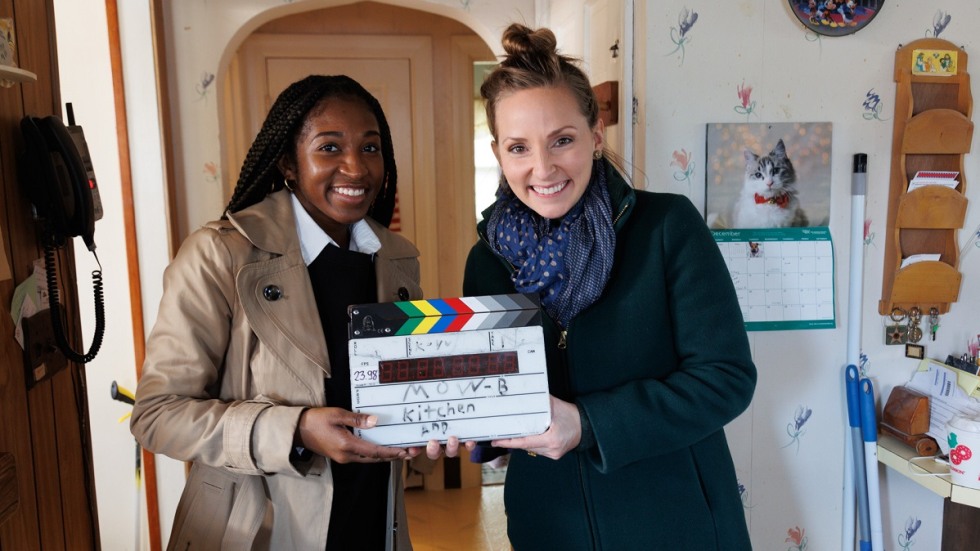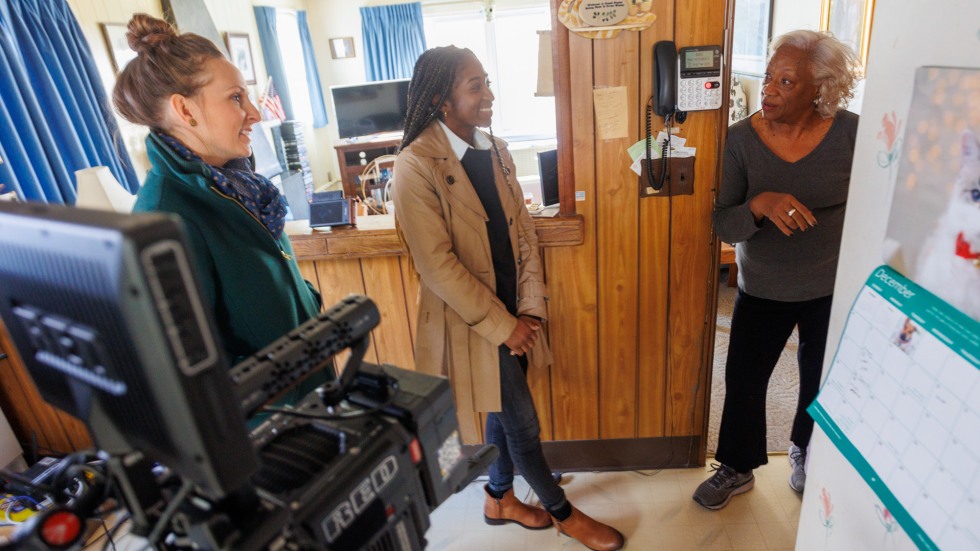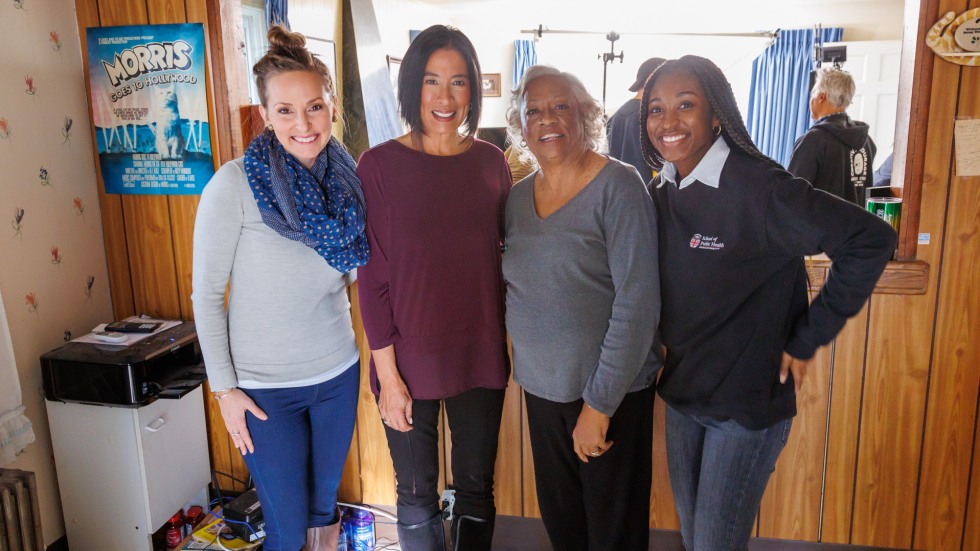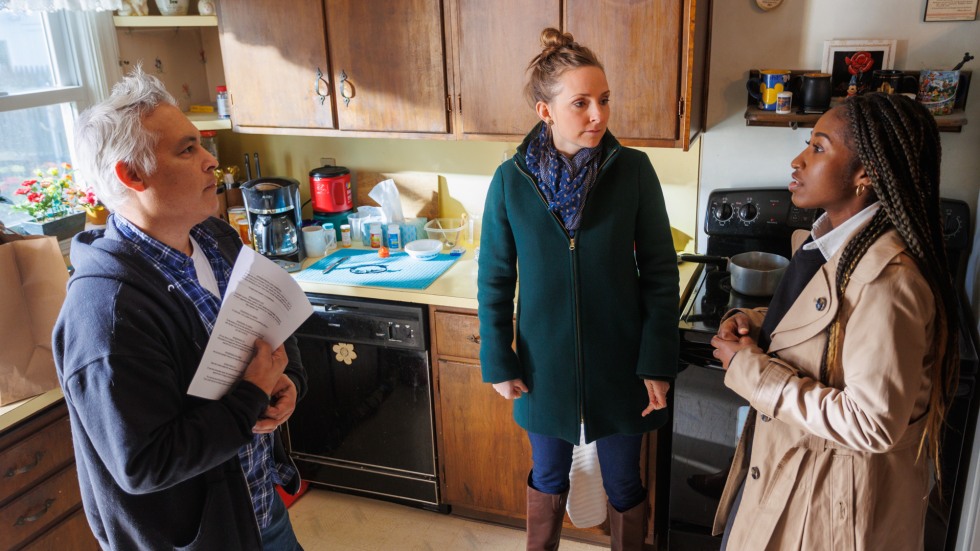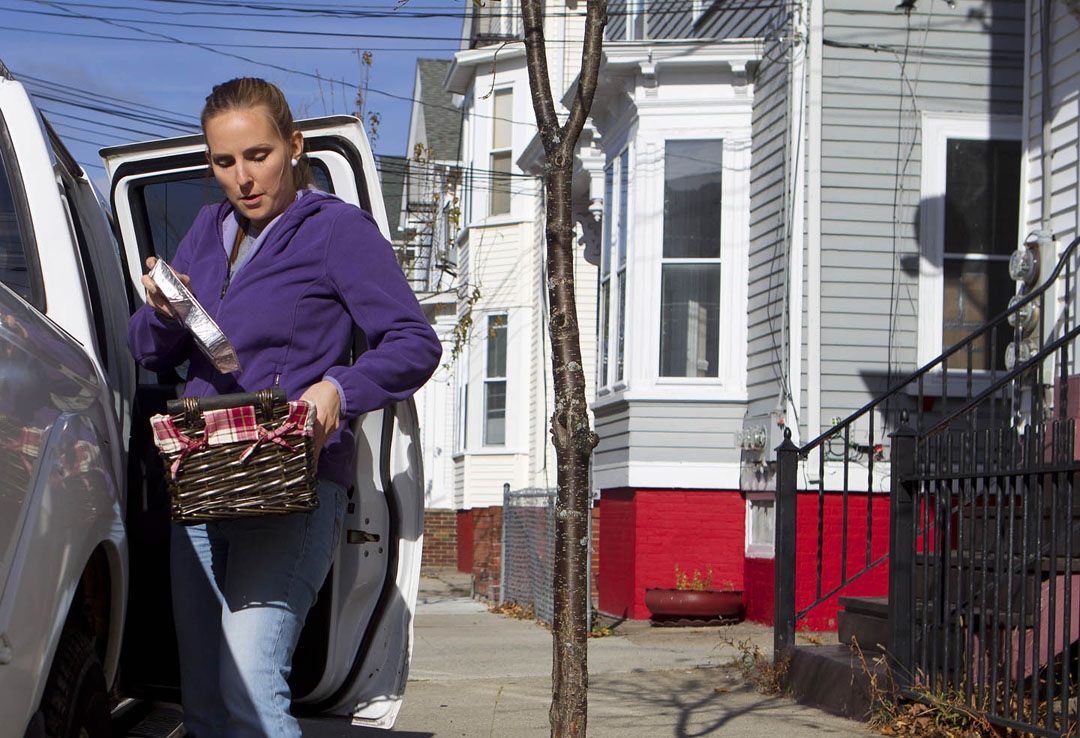Tell us how you came to Brown.
I grew up in Jackson, Mississippi and most of my immediate family lives in Mississippi. After high school, I attended Tougaloo College in Tougaloo, Mississippi, located in the Jackson Metropolitan area, where I studied biology. Tougaloo College has a long-standing partnership with Brown. While exploring Brown-Tougaloo post-graduation opportunities, I was encouraged to apply to the Health Equity Scholars program. I decided to apply and was accepted, and then I moved to Rhode Island.
How are you adjusting to New England?
Initially, the adjustment was somewhat difficult for me; I am extremely close with my family, and to be so far away from home was challenging. Growing up in the South and moving to the New England area, the cold weather and snow were a huge adjustment, but now I am so excited anytime I see snow in the forecast.
How did the Health Equity Scholars program help ease your transition to Brown?
It made all of the difference. It provided me with a close-knit community, and other students from Tougaloo are involved in it as well. Every two weeks, we meet as a group for leadership and professional development sessions, which are meant to strengthen our academic and professional pathways. Following these sessions, we have dinner together, where the cohort has the opportunity for fellowship and to build relationships. We also study together and go on outings. The program director has been very proactive about providing resources and making sure that we are aware of all the research opportunities at Brown. It’s nice to have a community like that, even somewhere as large-scale as Brown. The program has made me feel supported.
What made you turn from biology to public health?
I’ve always been interested in the idea of public health as a form of public service. At Tougaloo, I co-founded a community service organization called Tougaloo College Campus Civitan, which is still active today. We worked at local soup kitchens and completed on-campus clean-ups and beautification projects; we volunteered at the Veteran’s Hospital and at nursing homes, along with many other local community service opportunities. That’s what led me to public health: my strong desire to help communities facing adversities. That’s always been and continues to be my ultimate interest.
What are your plans for after graduation?
I’m interested in working for a nonprofit philanthropic organization. I am still exploring my specific areas of interest and considering options such as community development, health equity initiatives, and programs that support minority and marginalized communities. In the long term, I hope to start my own nonprofit community service organization, although I understand it will take time and experience to make that happen.
